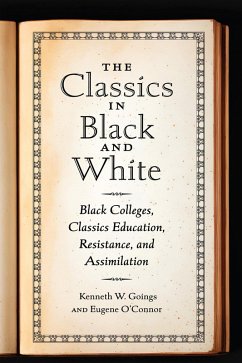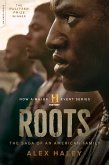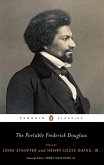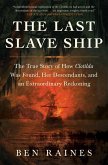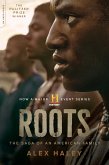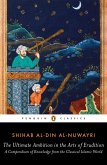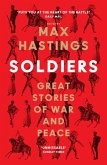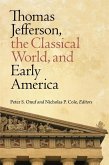Following emancipation, African Americans continued their quest for an education by constructing schools and colleges for Black students, mainly in the U.S. South, to acquire the tools of literacy, but beyond this, to enroll in courses in the Greek and Latin classics, then the major curriculum at American liberal arts colleges and universities. Classically trained African Americans from the time of the early U.S. republic had made a link between North Africa and the classical world; therefore, from almost the beginning of their quest for a formal education, many African Americans believed that the classics were their rightful legacy.
The Classics in Black and White is based extensively on the study of course catalogs of colleges founded for Black people after the Civil War by Black churches, largely White missionary societies and White philanthropic organizations. Kenneth W. Goings and Eugene O'Connor uncover the full extent of the colleges' classics curriculums and showcase the careers of prominent African American classicists, male and female, and their ultimately unsuccessful struggle to protect the liberal arts from being replaced by Black conservatives and White power brokers with vocational instruction such as woodworking for men and domestic science for women. This move to eliminate classics was in large part motivated by the very success of the colleges' classics programs. As Goings and O'Connor's survey of Black colleges' curriculums and texts reveals, the lessons they taught were about more than declensions and conjugations-they imparted the tools of self-formation and self-affirmation.
The Classics in Black and White is based extensively on the study of course catalogs of colleges founded for Black people after the Civil War by Black churches, largely White missionary societies and White philanthropic organizations. Kenneth W. Goings and Eugene O'Connor uncover the full extent of the colleges' classics curriculums and showcase the careers of prominent African American classicists, male and female, and their ultimately unsuccessful struggle to protect the liberal arts from being replaced by Black conservatives and White power brokers with vocational instruction such as woodworking for men and domestic science for women. This move to eliminate classics was in large part motivated by the very success of the colleges' classics programs. As Goings and O'Connor's survey of Black colleges' curriculums and texts reveals, the lessons they taught were about more than declensions and conjugations-they imparted the tools of self-formation and self-affirmation.
Dieser Download kann aus rechtlichen Gründen nur mit Rechnungsadresse in A, D ausgeliefert werden.

